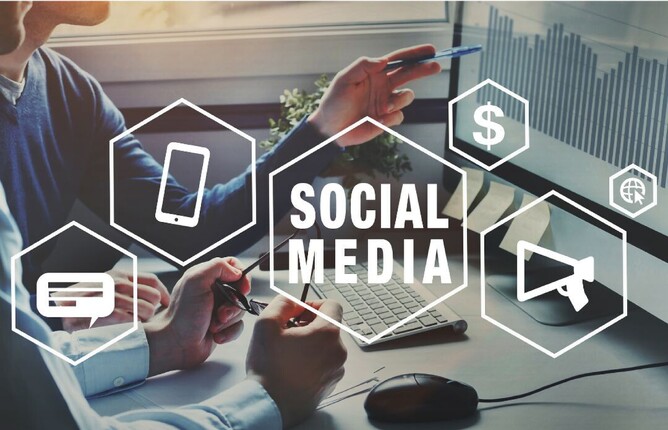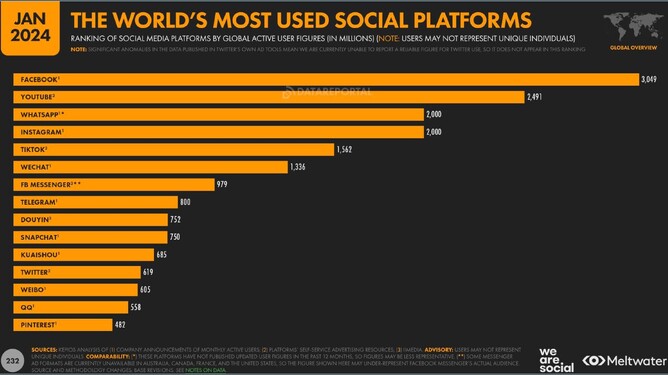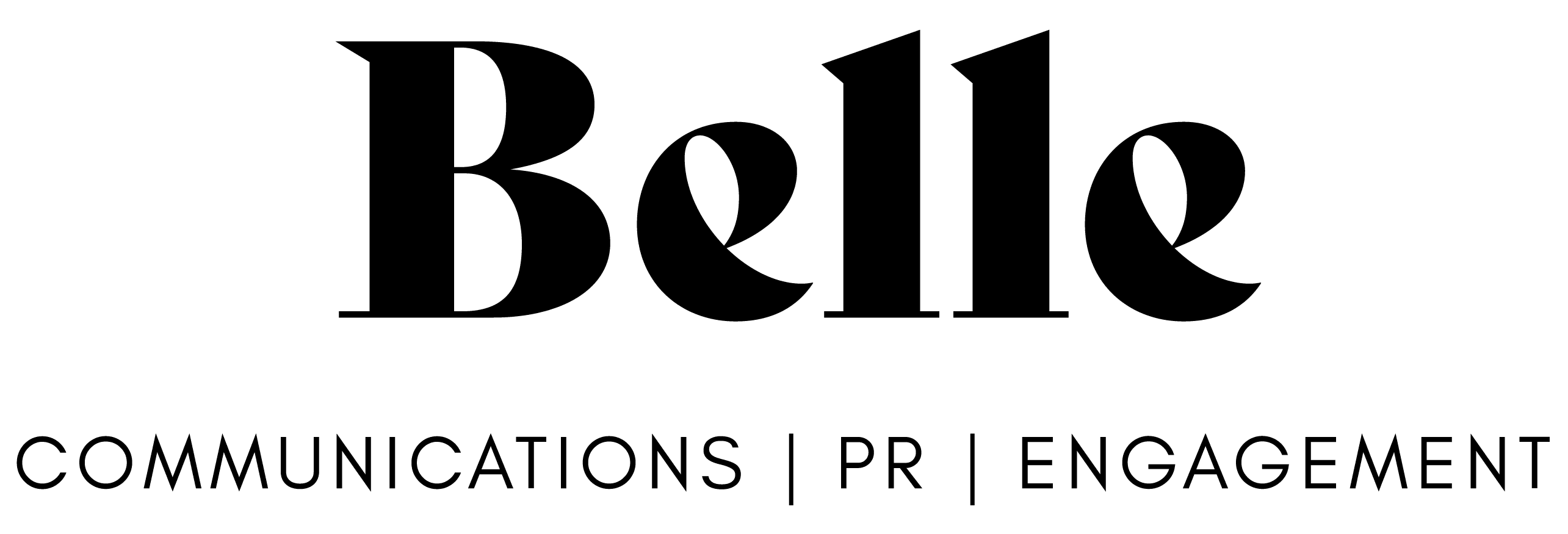Have you heard anyone say their 2024 New Year’s resolution was to decrease their screen and scrolling time? Team Belle have heard this a lot!
However, research shows we’re not backing down just yet with our consumption of social media. According to the Datareportal January 2024 global overview, we can see that social media growth has continued to increase:
· More than half of the world now uses social media (62.3%)
· 5.04 billion people around the world now use social media, 266 million new users have come online within the last year.
· The average daily time spent using social media is 2h 23m.
Meltwater figures show Facebook continues to lead the way with the most active users. Notably, of the top four social media platforms (Facebook, YouTube, WhatsApp and Instagram), three are owned by Meta (hello digital marketing strategy!).
This raises the question of whether social media is still worth your time as a business. The answer is YES, OF COURSE IT IS!
However, to maximise your social media presence, you need an effective strategy in place.
How to get the most out of your social media networks
At Belle PR, social media still plays a major role in our business and many of our clients. Whether the objective is to boost brand awareness, promote products and services, or showcase company values, social media is a powerful tool for achieving business goals.
When the content you share on social media channels has a clear purpose and outcome in mind, you can certainly create impact and get measurable results for the business or brand.
For example, Belle PR recently took over the management of one of our client’s social media platforms. We started by looking at the business’s overall goals and strategy and then produced a high-level social media plan that outlined some key themes and messaging we wanted to introduce to their channels over the month ahead. Each post has a purpose and is connected to the overarching goals, and they’ve since experienced 76.2% more engagement in their posts across their Facebook and Instagram.
Similarly, another client of Belle PR has seen an increase of 43% in content interactions through likes, comments and shares.
Let’s dive a little deeper into the good, the bad and the ugly of social media
The good things:
1. Connection
Social media is an effective tool for connecting individuals, communities, groups, organisations and other audiences. With just a few clicks, you can find out what the latest industry hot topic is or what one of your major competitors has been up to. Due to the accessibility of information shared, society is more in touch with what is happening outside of its immediate surroundings.
2. Accessibility
Platforms like X (formerly known as Twitter), Facebook and Instagram often provide real-time updates on news, trends and other entertainment. Whether it is breaking news, viral memes or industry developments, social media ensures that information is readily available at the fingertips.
3. Promotion of brand
From a business perspective, social media can be a reliable and readily used tool to promote your brand and connect with your audience about your products or services. You can customise your ads to reach specific groups of your target market, making the approach more tailored and effective.
4. Cost-effective and time-saving
Social media can be a cost-effective and timely tool when the content is engaging and aligns with the business goals. Tools like Meta Business can be used on Facebook and Instagram to schedule posts and save time down the track.
Now the not-so-good things:
1. Misinformation
Although social media users have access to real-time information, some information on social media can be misleading. Some sources of information should be filtered out if they are not reputable. It is crucial to differentiate between credible sources of information and misleading content. Netsafe, a New Zealand online safety non-profit organisation, has some helpful advice to identify fake news or misinformation.
2. Sponsored content
More of the content we see on social media today is sponsored, meaning that businesses pay for advertising to control their online image. This can result in biased or overly positive content that benefits the paying organisation or brand. How many times recently have you been followed by brands offering similar products to those you’ve been looking at online? Welcome to paid content!
On the other hand, earned media is organic and is usually created by a journalist, news media outlet, or other group or individual who influences an organisation’s credibility and reputation. This form of endorsement is great for building reputation and trust with audiences.
I acknowledge that many people are working hard to reduce their use of social media. However, here at Belle PR, we are still seeing great results for our business and our clients who regularly use social media as a tool in their PR, communications, and marketing toolbox. It’s one way to share and engage with audiences, albeit not the only way!
Remember, how you use social media is completely up to you, but if you want to ensure you are using it effectively, it might be a good idea to get some professional help.
Making social media work for you can help your brand get noticed, attract customers and build positive relationships online. We’re here to help if you’d like more information.


